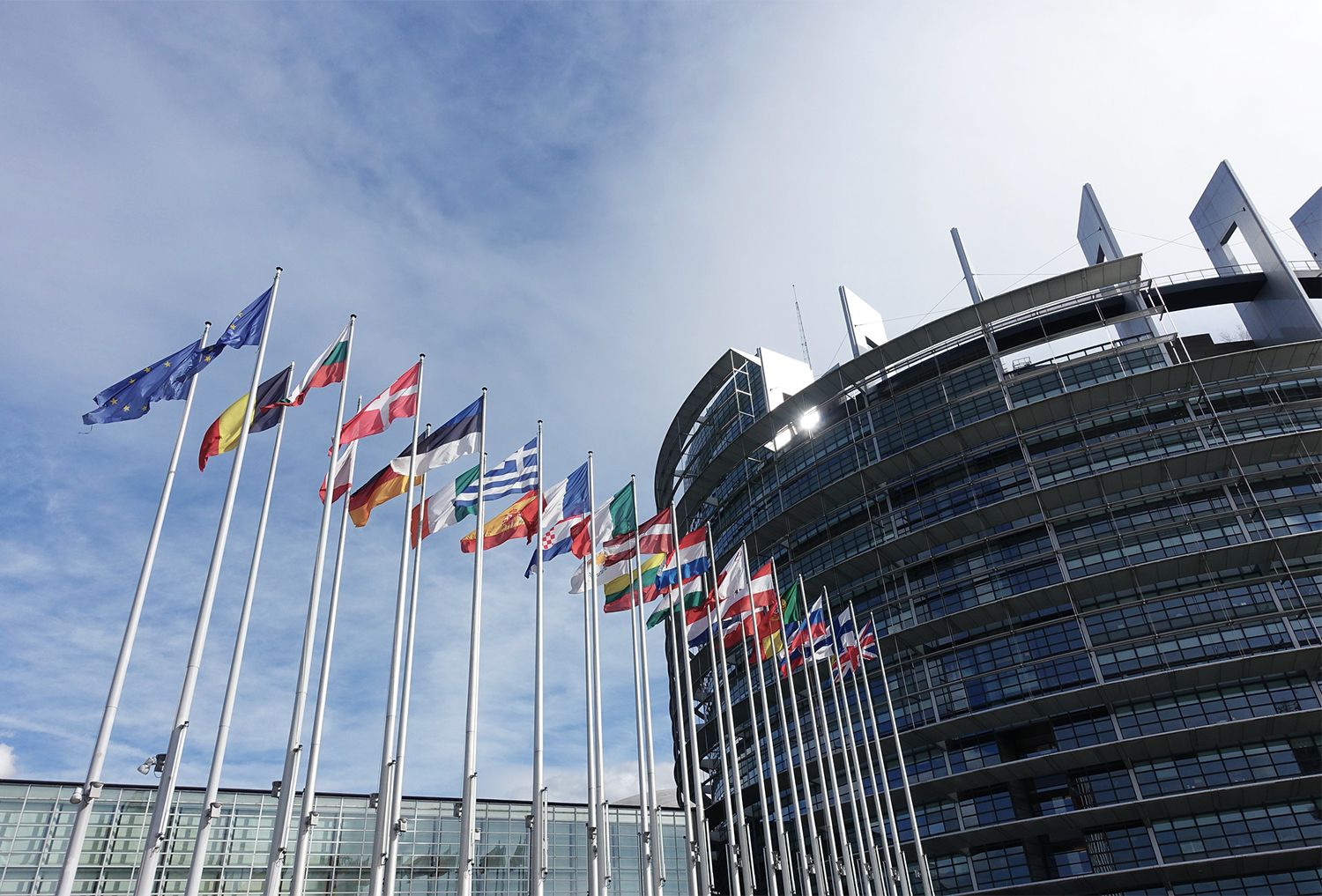Campaigners have called on the EU to urgently reform its rules around lobbying transparency after DeSmog revealed that a US oil-linked advocacy group has been lobbying against major green reforms in Europe, without declaring its activities.
A complaint was sent on Wednesday by transparency watchdog Corporate Europe Observatory to the president of the European Parliament, accusing the EU of failing to tackle secretive lobbying by Consumer Choice Center and similar outfits.
Consumer Choice Center – a US-based group which has links to the Koch fossil fuel network – has lobbied against green policies in the EU through social media adverts and articles in influential publications without being registered as a lobby group.
DeSmog’s investigation found that senior members of the pressure group have suggested that Europe should “shelve all their climate ambitions [and] refine more oil” in light of the war in Ukraine. The group spent €250,000 on EU lobbying in 2020, before it was removed from the transparency register, and employed 16 lobbyists.
Corporate Europe Observatory is now calling on the EU to make its lobbying register legally binding. Consumer Choice Center’s unregistered lobbying “is a perfect example” of the need for reform, the complaint said.
Corporate Europe Observatory also called on the EU to investigate lobbying by Consumer Choice Center and whether it had influenced decision-making by the European Commission. It suggested that Members of the European Parliament (MEPs) should be warned against participating in activities organised by Consumer Choice Center, or meeting with the group.
The findings come at a time of increased scrutiny of failings in EU transparency laws, following allegations in December that MEPs had been bribed by Qatar, Mauritania, and Morocco. The EU’s response to the scandal has been “inadequate”, according to Corporate Europe Observatory.
Secretive Lobbying
Despite being absent from the EU lobbying register, Consumer Choice Center continues to perform “influencing activities towards the EU institutions, seemingly without hitch”, the complaint from Corporate Europe Observatory said.
DeSmog understands that Consumer Choice Center was removed from the EU’s lobbying register in May 2022 following a quality check by the secretariat aimed at detecting potential inaccuracies, errors or omissions in the register. The group’s removal also followed the introduction of new lobbying rules requiring more transparency over the funding sources of registered groups, which were introduced last March.
The lobby group has written almost 50 articles on EU policy issues since it was removed from the register, including a number opposing an EU ban on petrol and diesel cars by 2035, and has hosted a “cross-party and cross-committee” group in European Parliament attended by more than 30 MEPs. The group has claimed that EU plans to become carbon neutral by 2050 would have disastrous economic consequences.
Consumer Choice Center has not responded to DeSmog’s multiple requests for comment.
In response to our investigation, Corporate Europe Observatory and MEP for the Greens, Daniel Freund, alleged that Consumer Choice Center was in “clear” breach of transparency rules.
The complaint was sent to the President of the European Parliament, Roberta Metsola, Vice-President of the European Commission for Values and Transparency, Věra Jourová, and Secretary-General of the European Council, Thérèse Blanchet.
Consumer Choice Center was founded in 2017 by the libertarian advocacy group Students for Liberty. Students for Liberty has received over $1 million in funding since 2009 from the philanthropic organisations of Charles Koch, who co-owns the US-conglomerate Koch Industries, which trades heavily in oil and gas. Organisations connected to Koch Industries have directed at least $100 million to climate science denial groups since 1997.
Over half of the staff members listed on the Consumer Choice Center website have been involved in Students for Liberty, while a number have professional links to programmes run by Koch-funded groups.
Consumer Choice Center does not publish its current funding sources but says on its website that it has previously been funded by the energy, chemical, and airlines industries.
‘Problematic Interference’
While the existing EU transparency register is “mandatory”, it is not legally binding, and organisations found in breach of the rules face only weak sanctions.
Currently, sanctions include being prevented from obtaining a parliamentary pass and from meeting with politicians. Transparency groups say that even these punishments are often not observed.
A legally binding register is the “only way to ensure that organisations cannot lobby or influence EU decision-makers without being registered,” Corporate Europe Observatory said in its letter to EU policymakers. “Those that try to would receive meaningful sanctions for non-compliance with the rules,” it said.
Daniel Freund MEP agreed. “Existing rules are not enforced. If they’re not applied, if they’re not enforced, the best rules in the world don’t help us,” he told DeSmog.
A European Parliament spokesperson told DeSmog that the secretariat of the transparency register may conduct investigations “based on a complaint that a registrant is alleged to have failed to comply with the Code of Conduct, as well as on its own initiative, in light of information that the registrant may no longer meet the eligibility requirements.”
It did not respond to questions about Corporate Europe Observatory’s calls for a legally binding register and stronger sanctions for non-compliance.
The EU has recently been shaken by allegations of allegations of illicit lobbying activities by Qatar, Mauritania, and Morocco. The “Qatargate” scandal has seen senior EU officials accused of accepting bribes and creating a fake NGO to lobby European Parliament, with several MEPs arrested.
In response to Qatargate, the EU has announced plans to launch a new ethics body, as well as new rules on accepting gifts, hospitality and travel. But the plans have been accused of being “unsatisfactory and not ambitious enough” by MEPs.
Campaigners also suggest that the “Qatargate” scandal has been misused to expediently target non-profit activist groups, including environmental organisations.
Corporate Europe Observatory said that the civil society sector had “been subjected to unwarranted politically motivated mud-slinging regarding their sources of funding, deflecting political and media attention away from organisations that are actually involved in untransparent and problematic interference in EU decision-making.”
Subscribe to our newsletter
Stay up to date with DeSmog news and alerts






